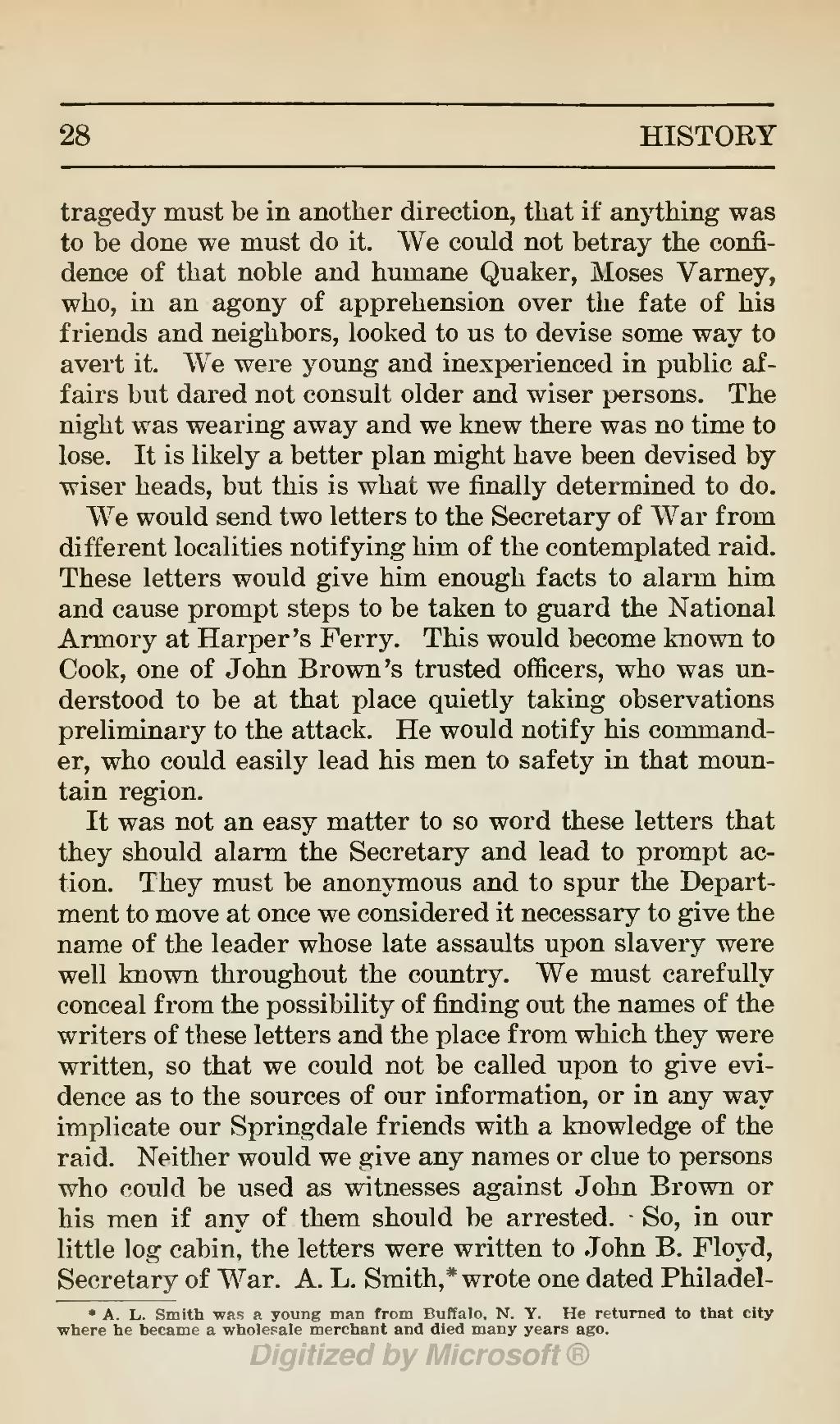tragedy must be in another direction, that if anything was to be done we must do it. We could not betray the confidence of that noble and humane Quaker, Moses Varney, who in an agony of apprehension over the fate of his friends and neighbors, looked to us to devise some way to avert it. We were young and inexperienced in public affairs but dared not consult older and wiser persons. The night was wearing away and we knew there was no time to lose. It is likely a better plan might have been devised by wiser heads, but this is what we finally determined to do.
We would send two letters to the Secretary of War from different localities notifying him of the contemplated raid. These letters would give him enough facts to alarm him and cause prompt steps to be taken to guard the National Armory at Harper’s Ferry. This would become known to Cook, one of John Brown’s trusted officers, who was understood to be at that place quietly taking observations preliminary to the attack. He would notify his commander, who could easily lead his men to safety in that mountain region.
It was not an easy matter to so word these letters that they should alarm the Secretary and lead to prompt action. They must be anonymous and to spur the Department to move at once we considered it necessary to give the name of the leader whose late assaults upon slavery were well known throughout the country. We must carefully conceal from the possibility of finding out the names of the writers of these letters and the place from which they were written, so that we could not be called upon to give evidence as to the sources of our information, or in any way implicate our Springdale friends with a knowledge of the raid. Neither would we give any names or clue to persons who could be used as witnesses against John Brown or his men if any of them should be arrested. So, in our little log cabin, the letters were written to John B. Floyd, Secretary of War. A. L. Smith,* wrote one dated Philadel--
* A. L. Smith was a young man from Buffalo, N. Y. He returned to that city where he became a wholesale merchant and died many years ago.
